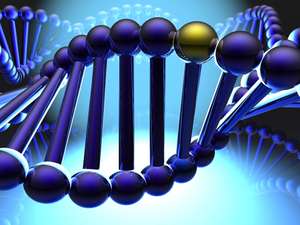Scientists have found that vegetarianism is fixed in the genes
 Genetics from Cornell University, using the genetic database of people living in different regions of the planet, found that the prevalence of vegetarian food in populations is fixed in genetic mutations. These mutations are associated with the gene responsible for the synthesis of fatty acids, which usually a person receives from animal food.
Genetics from Cornell University, using the genetic database of people living in different regions of the planet, found that the prevalence of vegetarian food in populations is fixed in genetic mutations. These mutations are associated with the gene responsible for the synthesis of fatty acids, which usually a person receives from animal food.Scientists used data from the project 1000 Genomes Project , whose goal is to build a detailed database of human genes. They found a rs66698963 mutation occurring in the FADS2 gene. This gene is involved in the synthesis of long polyunsaturated fatty acids, regulating the release of a particular enzyme.
People who consume animal food do not need this enzyme, because such fatty acids are ingested from food. But the presence or absence of this mutation affects the health of people and the likelihood of diseases of the cardiovascular system, colon cancer and others. In particular, the main accused is arachidonic acid , synthesized by the body.
The likelihood of disease in people prone to mutation, as a result of which an increased amount of the enzyme is released, increases if they deviate from a balanced diet, which should include omega-9 and omega-3 acids.
')
Scientists have seen a clear pattern - in the Indian city of Pune, where, due to historical and religious reasons, vegetarianism is common, this mutation occurs in 70% of cases. On the contrary, in the sample of genetic maps of American citizens (mainly from Kansas, where they have not heard of vegetarianism), such a mutation is found only in 20% of cases.
“With the lack of a sufficient amount of food of animal origin, long polyunsaturated fatty acids have to be synthesized in the body from precursors. The physiological need for arachidonic acid in vegetarians most likely supported genetic mutations that ensure the effective synthesis of the necessary substances, ”explain the authors, Tom Brenna and Kumar Kotapali [Kumar Kothapalli].
An example of food-related mutations that are tied to a place is the lactose tolerance gene , mutations with which appeared in several places on the planet several thousand years ago, and gave its carriers advantages in the struggle for survival.
Source: https://habr.com/ru/post/372031/
All Articles